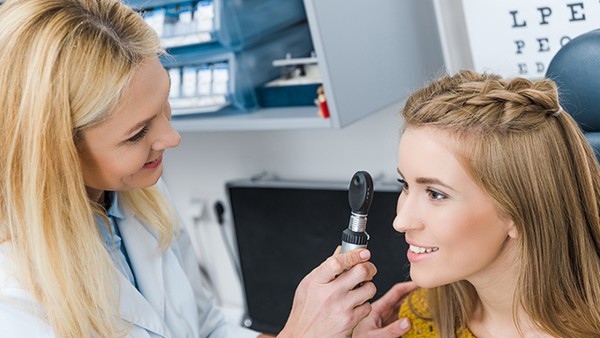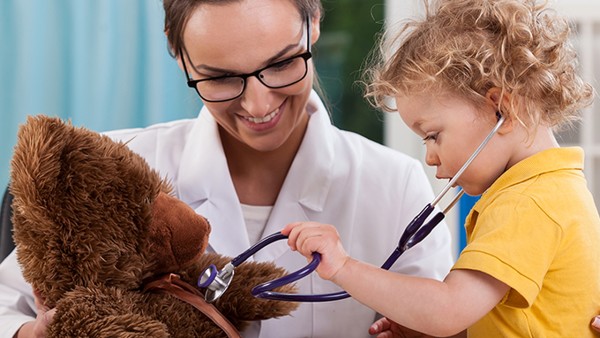How to Care for Allergic Rhinitis in Children

Allergic rhinitis, also known as hay fever, is a common condition that affects children. It is caused by an allergic reaction to allergens, such as pollen, dust mites, and pet dander. Symptoms of allergic rhinitis can include sneezing, runny nose, congestion, itchy eyes, and watery eyes.
There is no cure for allergic rhinitis, but there are a number of things that can be done to manage the condition and relieve symptoms.
Avoid allergens
The best way to manage allergic rhinitis is to avoid the allergens that trigger your child's symptoms. This can be difficult, but there are a number of things you can do to reduce your child's exposure to allergens, such as:
Keeping your child indoors on days when the pollen count is high
Using a dehumidifier to reduce dust mites in your home
Washing your child's bedding in hot water to kill dust mites
Vacuuming your home frequently
Keeping pets out of your child's bedroom
Medications
There are a number of medications that can be used to treat allergic rhinitis in children. These medications include:
Antihistamines block the histamines that are released by the body in response to an allergen. Histamines cause the symptoms of allergic rhinitis, such as sneezing, runny nose, and congestion.
Nasal corticosteroids are steroids that are sprayed into the nose. Nasal corticosteroids help to reduce inflammation in the nose and can relieve symptoms such as congestion and runny nose.
Leukotriene modifiers are medications that block the action of leukotrienes, which are chemicals that are released by the body in response to an allergen. Leukotrienes cause inflammation and can lead to symptoms such as sneezing, runny nose, and congestion.
Immunotherapy
Immunotherapy is a treatment that can help to desensitize your child to the allergens that trigger their symptoms. Immunotherapy involves giving your child a series of injections of gradually increasing doses of the allergen. Over time, this can help to reduce your child's sensitivity to the allergen and improve their symptoms.
Other treatments
There are a number of other treatments that can be used to relieve the symptoms of allergic rhinitis in children, such as:
Saline nasal irrigation can help to clear mucus and allergens from the nose.
Steam can help to open up the nasal passages and relieve congestion.
Over-the-counter nasal decongestants can help to relieve congestion.
When to see a doctor
You should see a doctor if your child has symptoms of allergic rhinitis, such as sneezing, runny nose, and congestion. Your doctor can diagnose your child's condition and recommend the best course of treatment.
Complications of allergic rhinitis
If allergic rhinitis is not treated, it can lead to a number of complications, such as:
Sinusitis is an inflammation of the sinuses. Sinusitis can cause symptoms such as facial pain, pressure, and congestion.
Ear infections are caused by bacteria or viruses that enter the ear through the Eustachian tube. Ear infections can cause symptoms such as ear pain, drainage, and hearing loss.
Asthma is a chronic condition that affects the airways. Asthma can cause symptoms such as wheezing, coughing, and shortness of breath.
Preventing allergic rhinitis
There is no sure way to prevent allergic rhinitis, but there are a number of things you can do to reduce your child's risk of developing the condition, such as:
Breastfeeding your child for at least six months. Breastfeeding can help to protect your child from developing allergies.
Avoiding exposing your child to smoke. Smoke can irritate the lungs and make allergic rhinitis worse.
Keeping your child away from pets. Pets can be a source of allergens, such as pet dander.
Using a dehumidifier to reduce dust mites in your home. Dust mites are a common trigger for allergic rhinitis.
Vacuuming your home frequently. Vacuuming can help to remove dust mites from your home.
Allergic rhinitis is a common condition, but it can be managed with proper care. By avoiding allergens, using medications, and following other treatments, you can help to relieve your child's symptoms and improve their quality of life.
The above is all the content that the editor wants to share with you. I sincerely hope that these contents can bring some help to your life and health, and I also wish that your life will be happier and happier.
Tags: #care #for #how












